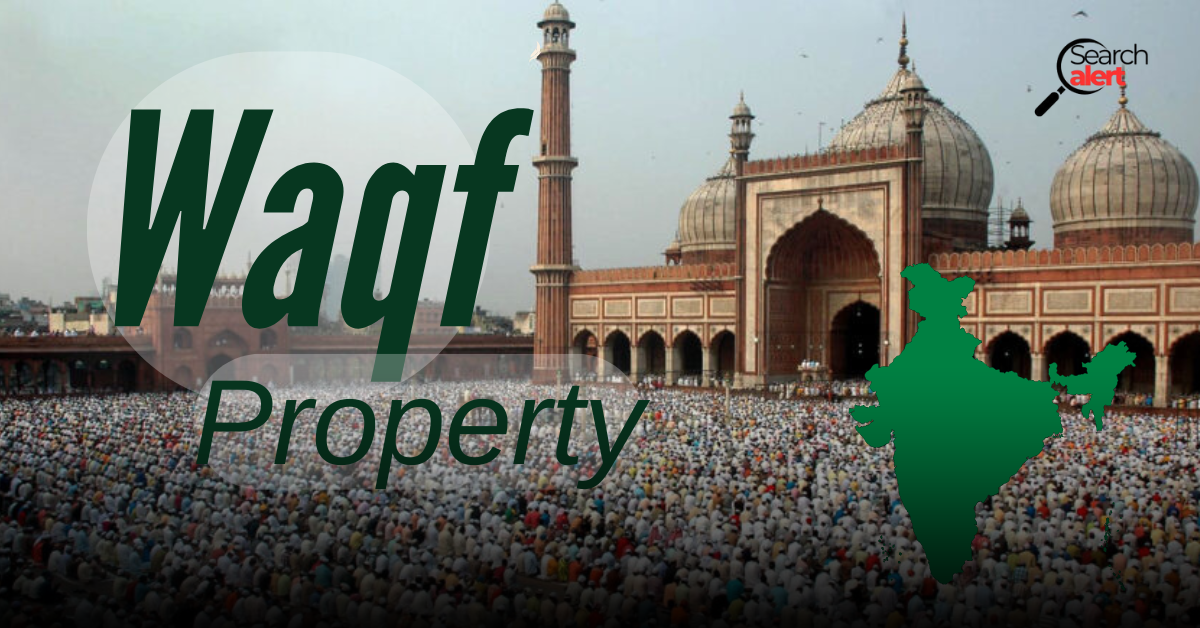Understanding the Waqf Board and Its Role in India
The central government is apparently prepared to present a bill in Parliament aimed at restricting the Waqf Board’s jurisdiction over assets. According to several news reports, the Union Cabinet accepted about 40 adjustments to the Waqf Act during a meeting, and the bill is expected to be tabled shortly.
Many Muslim leaders have criticised the bill as a threat to religious freedom, leading to controversy across the country. What you need to know about the Waqf argue is as follows:
What is Waqf?
Waqf comes from an Arabic word that means “to stop” or “to hold in trust.” Under the Waqf Act of 1954, Waqf is property dedicated in the name of Allah for religious and charity purposes. Once a property is declared as a Waqf, it becomes non-transferable and is held in forever as a charitable act toward God, ultimately transferring ownership to Waqf. Waqfs can be public, supporting charities, or private, benefiting the property owner’s family.
To form a Waqf, one must be of sound mind and have legal possession of the property. It’s interesting to note that the Waqif, or person who creates a Waqf, does not need to be a Muslim as long as they claim to believe in Islamic values.
The Legal Framework Governing Waqf in India
Waqf Act, 1995 and Its Amendments
The Waqf Act of 1995 created the legal foundation for Waqf Board formation and operation. Enhancing accountability and addressing a number of waqf property management-related difficulties were the goals of the Act. The following are some of its main clauses:
The constitution of each state’s Waqf Board.
To supervise Waqf Boards at the state level, the Central Waqf Council was established.
Waqf properties should be listed in a thorough registry to prevent abuse or infringement.
With the passage of the Waqf (Amendment) Act in 2013, numerous significant amendments were made:
Centralized administration: By allowing for more centralized oversight and control, the amendment enhanced the Central Waqf Council’s power.
Waqf property protection included measures to prevent misuse or unapproved transfers of waqf land.
The amendment also highlighted enhanced financial management and responsibility, as well as better auditing and transparency systems.
What is the Waqf Act Repeal Bill?
The Waqf Repeal Bill, 2022
The Waqf Act of 1995, which gave Waqf Boards more authority, superseded the earlier Wakf Act of 1954. The Waqf Boards were granted “limitless and absolute autonomy” by the 2013 amendment to the Act.
The Waqf Repeal Bill, 2022, aimed to repeal the Waqf Act of 1995 and was last tabled in the Rajya Sabha on December 8, 2023. The measure the government intends to submit in the next session of Parliament, however, might not be connected to this one.
The Modi government’s action was criticized by AIMIM Chief Asaduddin Owaisi, who claimed it aimed to deprive the Waqf Board of its independence. “The Waqf Act of 1995, which gave Waqf Boards more authority, superseded the earlier Wakf Act of 1954. The Waqf Boards were granted “limitless and absolute autonomy” by the 2013 amendment to the Act.
The Waqf Repeal Bill, 2022, aimed to repeal the Waqf Act of 1995 and was last tabled in the Rajya Sabha on December 8, 2023. The measure the government intends to submit in the next session of Parliament, however, might not be connected to this one.
The BJP government’s action was criticized by AIMIM (ALL INDIA MAJLIS-E-ITTEHADUL. MUSLIMEEN) Chief Asaduddin Owaisi, who claimed it aimed to deprive the Waqf Board of its independence. “This is against religious freedom in and of itself,” he said.
“If you amend the establishment and composition of the Waqf Board, it will lead to administrative chaos, loss of autonomy, and increased government control, which will affect the independence of the Waqf.” Owaisi said, threatening “administrative disaster.”
Short FAQs about the Waqf Board and Its Role in India
A waqf is a property or asset dedicated in the name of Allah for religious and charitable purposes.
They include famous locations like the Taj Mahal, Jama Masjid, and Charminar, and they cover around 900k properties and 2.3 million acres.
The Catholic Church of India is the second-largest nonagricultural landowner after the government.
No, Hindus do not have a board similar to the Waqf Board.



